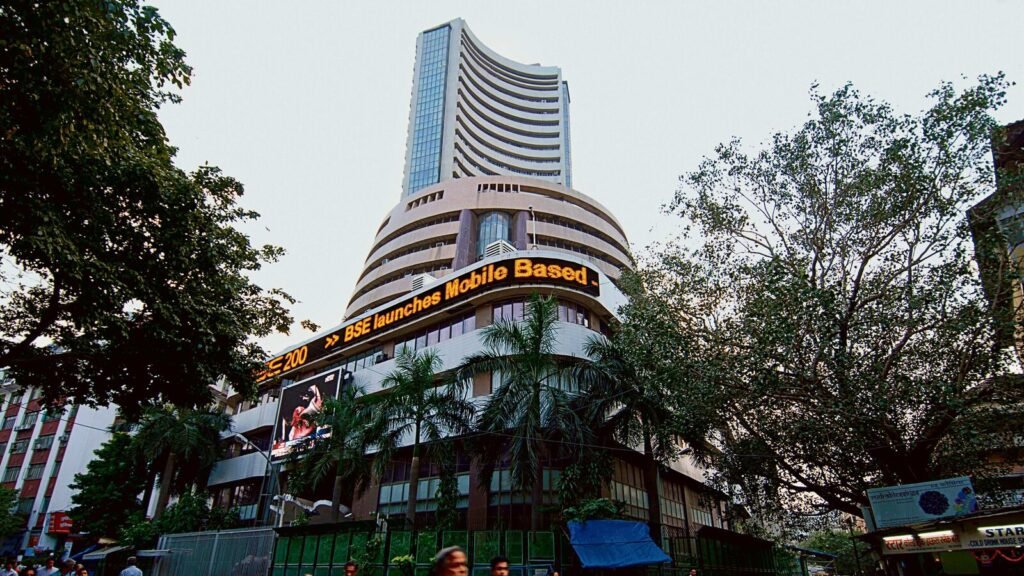After the Indian stock market experienced a major sell-off on June 4 following the Bharatiya Janata Party’s failure to secure a majority of seats in the mid-term elections for the 2024 Lok Sabha elections, attention will now be focused on core macroeconomic factors and the Reserve Bank of India’s (RBI) monetary policy meeting.
The outcome of India’s 2024 Lok Sabha elections has caused major uncertainty in the stock market, leading to the worst market crash in four years.
India’s stock market had projected the BJP-led National Democratic Alliance (NDA) to win over 300 seats. But the election results were worse than expected, forcing the BJP to rely on the NDA coalition to form the government, spooking investors.
Read also: Lok Sabha election results: Basant Maheshwari warns shareholders of state-run companies about falling share prices, asks them to ‘analyse their shares’
The Nifty 50 opened at 23,179.50 on Tuesday and plunged 8.5 per cent to hit an intraday low of 21,281.45, while the Sensex opened at 76,285.78 and slumped 8.2 per cent to hit 70,234.43.
The Sensex index fell 4,390 points or 5.74 percent to close at 72,079.05, while the Nifty 50 index fell 1,379 points or 5.93 percent to close at 21,884.50.
“Indian equities fell sharply after vote counting indicated that the ruling NDA government is likely to win fewer seats. Volatility spiked and India VIX crossed the 31.5 level, putting further pressure on the market,” said Ajay Menon, MD & CEO, Brokerage & Distribution, Motilal Oswal Financial Services (MOFSL).
Where do you see the market heading in the future?
Amisha Vora, chairman and managing director at Prabhudas Lilladher, said the market is likely to lose the “Modi premium”, which will lead to a correction in state-run enterprises and infrastructure stocks.
“Once the dust settles, attention will shift to the core macro factors impacting India. While investors should be prepared for volatility in the near term, the fundamentals underlying India’s growth story remain strong,” Vora said.
Read also: Will PSU stocks face further selling pressure after a 25% fall?
Menon believes that the overall market may become volatile if sentiment takes a hit, but the major trends in the Indian equity market are expected to recover after volatility subsides over the next few days.
“We expect volatility around the outcomes to subside over the next few days and market focus to return to the continuing robust macroeconomic and fundamentals. With a new government in place, the first and full budget for FY25 will be presented within the next few weeks and themes such as capex, manufacturing, rural, consumption and credit will again come into focus. The rural and consumption themes will accelerate with the arrival and progress of the monsoon, which is expected to be stronger than normal this year,” Menon said.
While market volatility may continue in the short term, he suggests that retail investors should use the correction as an opportunity to accumulate blue chip stocks in three to four installments.The focus over the next few days will be on discussions regarding government formation and the Reserve Bank of India’s monetary policy.
What should your trading strategy be now?
History shows that stock markets tend to recover and thrive in the long term despite initial volatility. For example, after both the 2014 and 2019 elections, the Indian stock market recorded significant gains in the months following the election results.
Read also: Stock market crash: Emkay says market correction not enough, advises staying away from state-owned enterprises and capital goods companies
“Investors are advised to focus on long-term strategies like keeping portfolios diversified and avoiding panic selling. Strong fundamentals and resilience to political changes are essential to weather market volatility,” said Pradeep Gupta, co-founder and vice-chairman, Anand Rathi Group.
While the market’s immediate reaction to the election outcome will be volatile, Gupta believes the overall long-term outlook remains positive, especially if policy continuity is maintained.
“Investors are advised to stay informed, focus on fundamentals and prepare for short-term volatility,” he added.
Disclaimer: The views and recommendations expressed above are those of the individual analysts or brokerage firms and not that of Mint. We recommend that you check with a qualified professional before making any investment decisions.
You are on Mint! India’s No.1 News Site (Source: Press Gazette). For more of our business coverage and market insights, click here!

